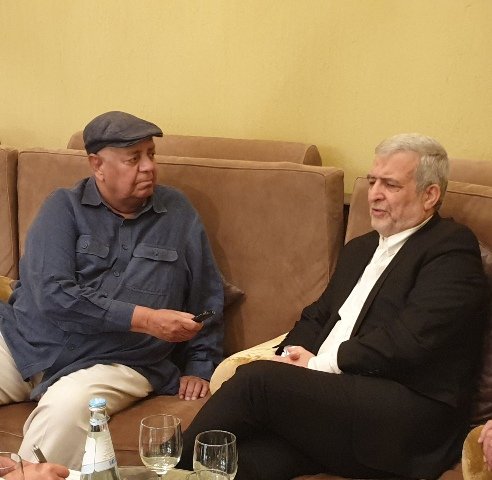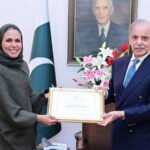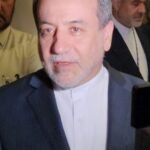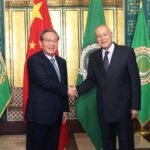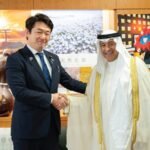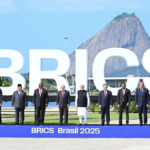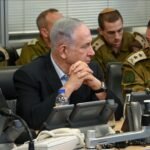Doha, 04 May 2023 (QT)
By Ashraf Siddiqui
Special Envoy of Iran for Afghanistan Hassan Kazemi Qomi has stressed the international community and the United Nations keenness to support the initiatives and mechanisms chalked out by the neighbouring and regional countries of Afghanistan to advance peace and stability in the country and the region.
Talking to Qatar Tribune on the sidelines of the two-day UN Conference on Afghanistan concluded in Doha on Tuesday, Qomi said Afghanistan and its people for the last four decades have been facing numerous challenges and crises, including security, economic, occupation, terrorism, narcotics, drugs and other problems.
He pointed out that Afghanistan’s internal situation has badly affected the economic, security and stability of the neighbouring countries, as well as the regional countries.
He said, “We are witnessing a wave of large migration of Afghans from their country. The unfortunate sufferings and challenges being faced by the Afghan people are the result of 20 years of long occupation and the colonial policies adopted during those years. Therefore, the major responsibility to shoulder economic viability and humanitarian support lies on the countries that occupied Afghanistan for long years.”
Qomi said although occupation forces have gone out of Afghanistan, there have been some proxy wars in the country and terrorist groups, including ISIS, are replacing them.
“The crises are increasing, expanded, promoted and are adding to the problems for Afghanistan and to the region. We believe that occupying forces are accountable for all these sufferings and problems and they should be held accountable for these issues,” he said. “So today, with great concern, regional and the neighbouring countries are following Afghan development and at the same time, we are trying to establish some regional initiatives mechanism to take
part in the Afghan process and encourage Kabul to take some effective measures,” he added.
“In addition to the support and helping the Afghans to resolve their economic problems, to progress and develop, to create a political process, to overcome the crisis, to advance peace and stability in Afghanistan and the region, it is important to free the Afghan frozen assets,” Qomi added.
He emphasised that Pakistan, being a neighbouring country, can play an important role to create a stable, sustainable and peaceful Afghanistan.
“Let us adopt a united voice through meetings on Afghanistan making Taliban officials committed and encourage them to form an inclusive government to pay attention to humanitarian issues, rights of women and to all other necessary issues,” he stressed.
“With our experience during the last over four decades facing the Afghan challenges, we need to encourage the Taliban to realise the ground realities that they are a part of the Afghan reality, but there are several other ethnicities, and factions to be included in forming the government to avoid civil wars, promote a stable Afghanistan and create trust among the international community,” the Iranian diplomat said.
The UN Conference on Afghanistan in Doha, Capital city of State of Qatar was concluded without any result and with an open division in approach towards solving of Afghan crisis among the Western participants and the Afghan region's participating countries.
Secretary General United Nations, Antonio Guterres along with delegations from around 25 countries participated in a two-day conference. Guterres addressing to the press conference on concluding said that next meeting on Afghan crisis between the key players will continue at later stage, without announcing when and where.
A number of participating delegates specially from the region around Afghanistan raised their reservations on not inviting the Taliban representatives.

